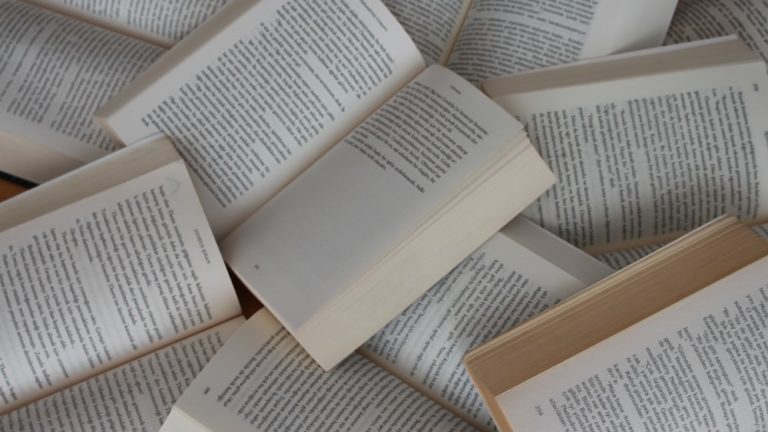The Ultimate Guide To The Best Cooking Books Of 2024
The Ultimate Guide To The Best Cooking Books Of 2024
In the enchanting world of culinary arts, discovering the best cooking books can be likened to unearthing treasured gems in a vast sea of literature. It’s not merely about finding recipes, but embarking on a journey through diverse cultures, historical epochs, and the minds of culinary wizards who transform simple ingredients into mouth-watering feasts.
Key Points:
- Choose cooking books with clear instructions and minimal ingredients for beginners.
- Research books specialized in dietary restrictions for tailored recipes.
- Look for quick and easy recipe cookbooks for busy lifestyles.
- Engage actively with the cookbook’s content by reading introductions and experimenting with recipes.
- Organize ingredients and equipment ahead of time for a smooth cooking process.
- Make personalized notes in the cookbook to track what works and variations tried.
- The journey through cooking books is about continuous learning, exploring, and evolving in the kitchen.
As a seasoned curator of gastronomic masterpieces, I have seen firsthand the transformative power of a well-crafted cooking book. It can morph a timid novice into a confident home chef, instill a sense of cultural appreciation, and inspire a lifelong passion for gastronomy. This guide is designed keeping in mind a wide audience – from beginner cooks to culinary aficionados, ensuring everyone finds something to spice up their kitchen repertoire.
Whether your interest lies in exploring exotic cuisines or mastering the basics of wholesome comfort food, this curated list of the top cooking books of 2024 is a testament to the beauty and diversity of cooking. These selections are not just compilations of recipes; they are narratives that speak of tradition, innovation, and the art of cooking. Let’s dive into this culinary adventure together, shall we?
Discover the Top Cooking Books of 2024
The culinary world is ever-evolving, and keeping up with the latest and greatest can be a delightful challenge. The year 2024 has been no exception, presenting us with a bounty of cooking books that cater to a range of tastes, dietary preferences, and skill levels. What makes this year’s selections stand out is their commitment to sustainability, accessibility, and innovation. Each title has been chosen for its unique contributions to the culinary arts, from traditional cooking techniques revived for the modern kitchen to cutting-edge gastronomic science that will intrigue even the most seasoned chefs. Welcome to your ultimate guide to the culinary wonders of 2024!
1. Jerusalem: A Cookbook by Yotam Ottolenghi and Sami Tamimi
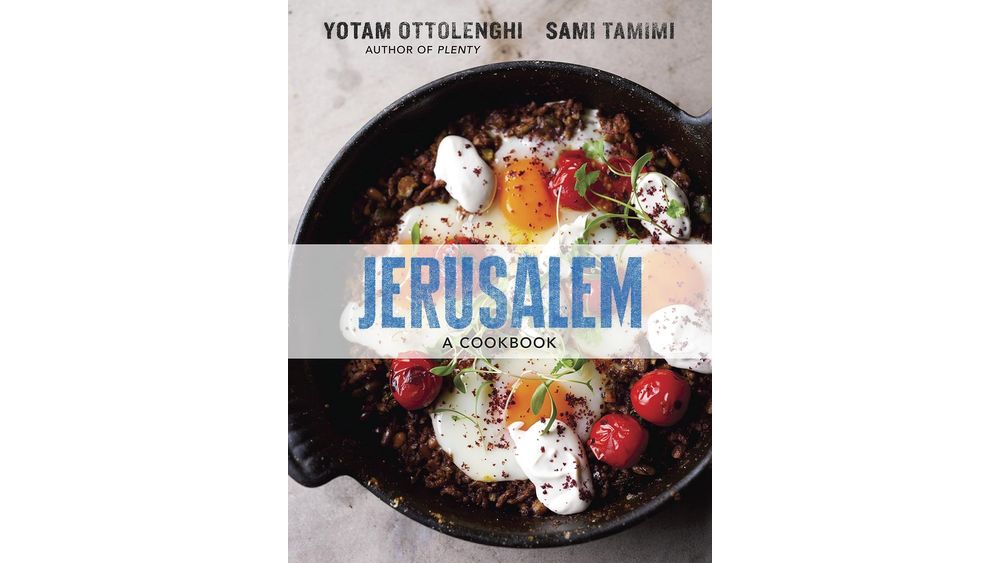
“Jerusalem: A Cookbook” by Yotam Ottolenghi and Sami Tamimi emerges as a vibrant testament to the power of food in bridging cultural divides. Crafted by two friends from conflicting backgrounds, Israeli and Palestinian, this cookbook is much more than a collection of recipes; it’s a celebration of culinary harmony and shared humanity. The recipes within are not only scrumptious but are also presented with such love and care that they’ve become favorites for gifting among those appreciative of meaningful, communal eating experiences.
The flavors of Jerusalem come alive through the diverse and healthy recipes detailed in this book. From braised eggs with lamb, tahini, and sumac to lamb meatballs with barberries, yogurt and herbs, each recipe fills the home with mesmerizing aromas, becoming a journey of exploration for both the novice and experienced cook. The book’s welcoming approach to cooking demonstrates that while recipes may list many ingredients, the essence lies in the joy and simplicity of assembling them, thus creating dishes brimming with flavor and tradition.
Pro:
- Offers a unique blend of Israeli and Palestinian cuisines, showcasing the cultural diversity and unity through food.
- The stories and backgrounds shared before each recipe enrich the cooking experience, connecting you to each dish’s heritage.
- Beautiful photography and descriptions make it not only a cookbook but a piece to cherish and display.
Contra:
- Some recipes may seem daunting due to the long list of ingredients, particularly the spices and herbs.
- Requires some specialty ingredients that may not be readily available in all local markets.
I recommend this book to you if:
- You’re passionate about Middle Eastern cuisine and eager to explore its depths.
- You cherish cookbooks with stories that transcend mere recipes and venture into cultural tales.
- You’re looking for healthy, flavorful dishes that bring family and friends together.
2. The Modern Vegetarian Kitchen by Peter Berley
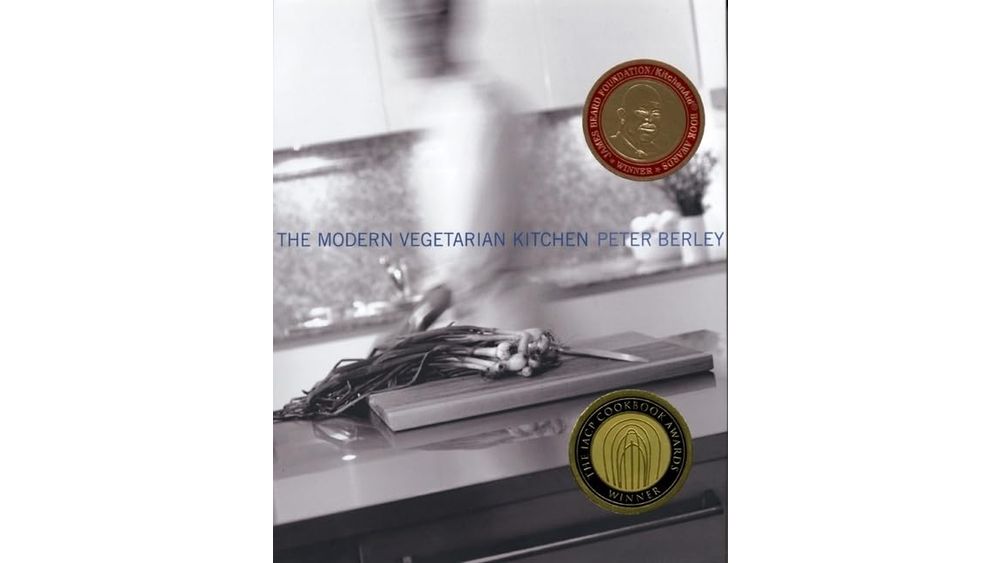
Peter Berley’s “The Modern Vegetarian Kitchen” redefines the essence of vegetarian cooking, turning it into a spiritual and philosophical journey that emphasizes balance, harmony, and the intrinsic flavors of ingredients. Unlike any other cookbook on the market, it provides a pedagogical intimacy as if Berley himself is guiding you through his instructional kitchen, imbuing each recipe with a sense of unity and purpose.
This book goes beyond typical vegetarian fare, offering a comprehensive exploration from pressure cooker dishes to risottos and curries. It surprises with a section on bread-making, showcasing Berley’s versatility and mastery in the kitchen. Equally suited for the novice cook or the seasoned chef, this cookbook stays on the counter rather than the shelf, a testament to its practicality and the sheer joy it brings into daily cooking routines.
Pro:
- Offers a holistic approach to vegetarian cooking that is both enlightening and grounding.
- Diverse recipes that encourage experimentation with different cooking techniques, including an unexpected but delightful section on bread.
- Written with a warm and inviting tone, making you feel as though Peter Berley is cooking right alongside you.
Contra:
- May lean more towards those with a deeper interest in the philosophy and nuances of vegetarian cooking, rather than those looking for quick recipes.
- Some recipes require access to specialized ingredients or kitchen equipment, making them less accessible to everyone.
I recommend this book to you if:
- You’re seeking to deepen your understanding and practice of vegetarian cooking as a form of culinary art.
- You appreciate cookbooks that are not just about recipes but about nurturing a relationship with food.
- You’re excited about the challenge of creating dishes that are a blend of flavor, nutrition, and aesthetics.
3. Ad Hoc at Home by Thomas Keller
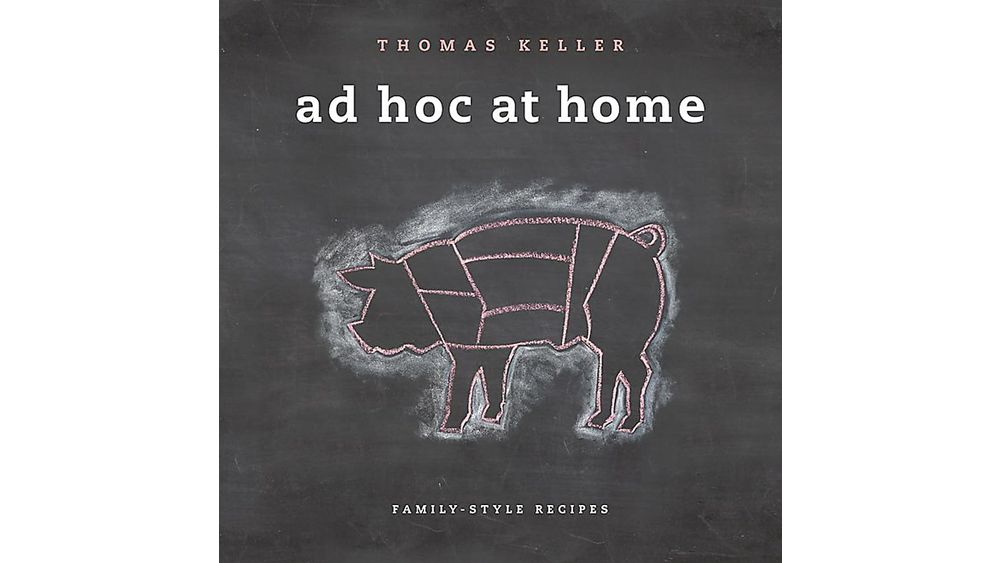
Thomas Keller, among the greatest American chefs, brings to us “Ad Hoc at Home”, a culinary masterpiece that bridges the gap between professional and home cooking with ease and grace. Designed to debunk the myth that high-quality cooking is only for the professionals, this book is a beacon for everyone aiming to create memorable family meals. Keller insists that cooking should be a joyful act that brings people together, emphasizing dishes meant to be served from big bowls and platters, promoting a communal dining experience.
The beauty of “Ad Hoc at Home” lies in its detailed instructions and Keller’s knack for demystifying complex dishes. Through engaging narratives, he shares the essential skills any cook should have, from “two finger pinch” salt measuring to intuitively braising meats without a recipe. This book is not just a collection of recipes; it’s a comprehensive guide to understanding the feel and rhythm of cooking, transforming daunting tasks into enjoyable rituals.
Pro:
- Offers detailed guides and techniques from a renowned chef, making high-quality cooking accessible at home.
- Encourages communal dining experiences, fostering connections through food.
- Helps build intuitive cooking skills, with tips on measurements and ingredient handling that apply universally.
Contra:
- Some recipes may be seen as daunting for beginners or those with limited cooking setup.
- Requires commitment to practice and build the intuitive skills Keller advocates for.
- Not ideal for individuals looking for quick and simple recipes.
I recommend this book to you if:
- You are passionate about elevating your cooking skills beyond mere recipe following.
- You enjoy creating meals that bring people together.
- You’re interested in learning intuitive cooking from a master chef.
4. The Joy of Cooking by Irma Rombauer
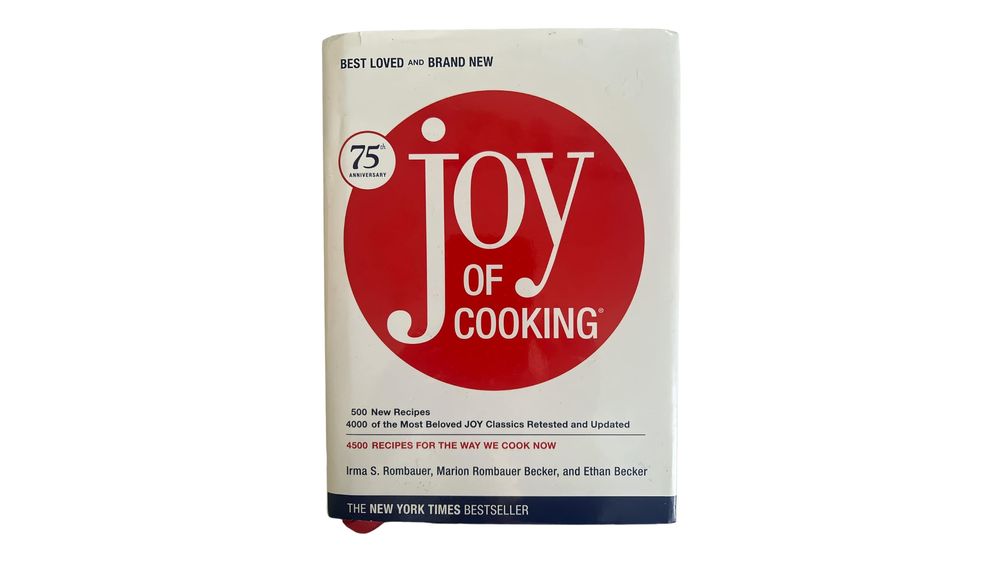
“The Joy of Cooking” by Irma Rombauer has evolved into more than just a cookbook; it’s a cherished kitchen companion that has guided cooks through countless meals and culinary challenges. Since its initial publication, it has been updated to adapt to changing tastes and nutritional science, proving its timelessness and relevance in any kitchen. Its friendly, conversational tone coupled with comprehensive cooking advice makes it an invaluable resource.
What sets this book apart is its attempt to be all-encompassing, offering recipes that range from traditional American dishes to contemporary, health-conscious meals. With sections updated on nutrition and technique, it’s a guide well suited for both budding and experienced cooks. Despite its extensive coverage, it retains Rombauer’s original spirit of making cooking accessible and enjoyable for everyone.
Pro:
- Broad spectrum of recipes, from classic American dishes to modern, healthier options.
- Helpful sections on kitchen equipment, nutrition, and technique cater to cooks at all levels.
- Enhanced Kindle edition with hyperlinked menus and recipes, perfect for tech-savvy cooks.
Contra:
- The physical book’s size may be daunting for some, and navigating through the immense amount of content can be a challenge.
- Some traditional recipes might not appeal to everyone, especially those with modern dietary preferences.
- Errors in digital formatting such as the non-functional table of contents in some editions.
I recommend this book to you if:
- You seek a comprehensive guide that covers all facets of cooking, from recipes to nutrition.
- You enjoy American-style cooking and are curious about incorporating “American-style” dishes into your repertoire.
- You appreciate cookbooks with a historical and personal backstory, enriching your cooking experience.
5. Essentials of Classic Italian Cooking: 30th Anniversary Edition: A Cookbook by Marcella Hazan
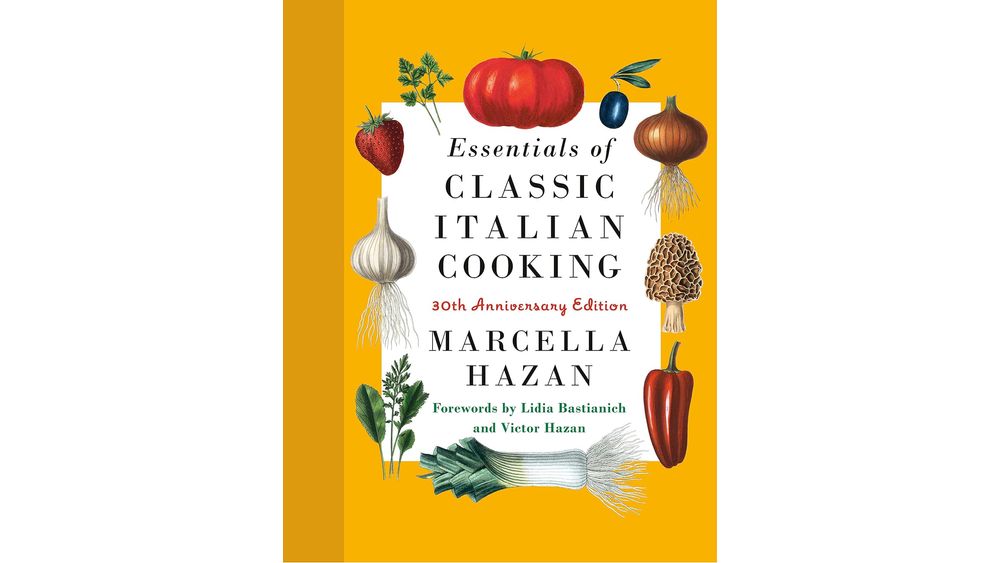
In the world of Italian cuisine, few names shine as brightly as Marcella Hazan’s. “Essentials of Classic Italian Cooking: 30th Anniversary Edition” is not just a cookbook; it’s an immersive journey into the heart of Italian cooking, guided by Hazan’s expert hand. With decades of culinary experience, she unlocks the secrets of Italian dishes, emphasizing simplicity and the quality of ingredients. Whether you’re a novice or an experienced chef, Hazan’s instructions transform simple ingredients into extraordinary meals.
One of the most joyous revelations for readers is learning that authentic Italian cooking need not involve hours of preparation or a mess in the kitchen. Anticipating every possible query or hiccup, Hazan combines thoroughness with warmth, making you feel as though she’s right there in the kitchen with you. From the art of making perfect pasta to mastering sauces and stews, this book promises not just meals, but an education in Italian cooking.
Pro:
- Comprehensive coverage of Italian cuisine, from pastas and sauces to meats and deserts.
- Hazan’s detailed guidance makes complex dishes accessible to home cooks of all levels.
- The recipes require minimal, quality ingredients, underscoring the simplicity and elegance of Italian cooking.
Contra:
- Those looking for quick and easy recipes may find some of the dishes time-consuming.
- Readers interested in modern or experimental cooking might find this book too traditional.
- The absence of photographic illustrations may be a drawback for visual learners.
I recommend this book to you if:
- You’re seeking an authentic guide to Italian cooking.
- You appreciate culinary education as much as the cooking itself.
- You are interested in traditional recipes made with care and expertise.
6. Mastering the Art of French Cooking by Julia Child, Louisette Bertholle, and Simone Beck
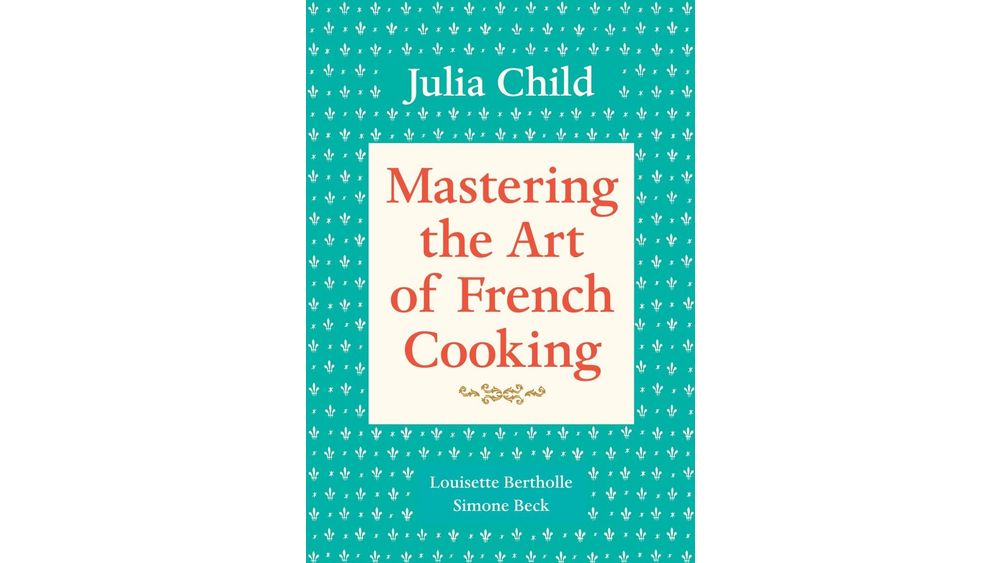
“Mastering the Art of French Cooking”, penned by the iconic Julia Child along with Louisette Bertholle, and Simone Beck, stands as a monolith in culinary literature, particularly for those entranced by French cuisine. This book, which has guided many through the intricacies of French cooking, combines easy-to-follow recipes with detailed techniques that cater to cooks at every level. From the perfect coq au vin to the smoothest béarnaise, Child and her co-authors invite readers into a world where cooking is a joy and French dishes are demystified.
Despite its acclaim, this book caters to a specific taste – quite literally. With a focus on recipes that often incorporate wine and aim for authentic French flavors, it’s a celebration of French gastronomy. However, it’s also a call to experimental cooking, reminding us that alterations can be as much a part of the cooking process as following the recipe. Whether it’s reducing the onion for a subtler flavor or finding a balance in cooking times, Child’s tome encourages adaptation and inventiveness.
Pro:
- Detailed instructions and comprehensive coverage of French cuisine make it accessible to beginners.
- Encourages cooking with imagination and a willingness to experiment.
- Recipes are designed with the American home cook in mind, making ingredients and techniques more relatable.
Contra:
- Heavy reliance on wine in recipes may alienate those who do not cook with alcohol.
- Some recipes might require modifications to match personal taste or restaurant-quality expectations.
- The book may lack certain detail in recipes, requiring some culinary intuition or additional research.
I recommend this book to you if:
- You’re fascinated by French cuisine and eager to explore it further.
- You’re looking for a cookbook that combines classical techniques with the possibility for personal adaptation.
- You appreciate the historical and cultural context that comes with cooking traditional French meals.
7. Salt, Fat, Acid, Heat by Samin Nosrat
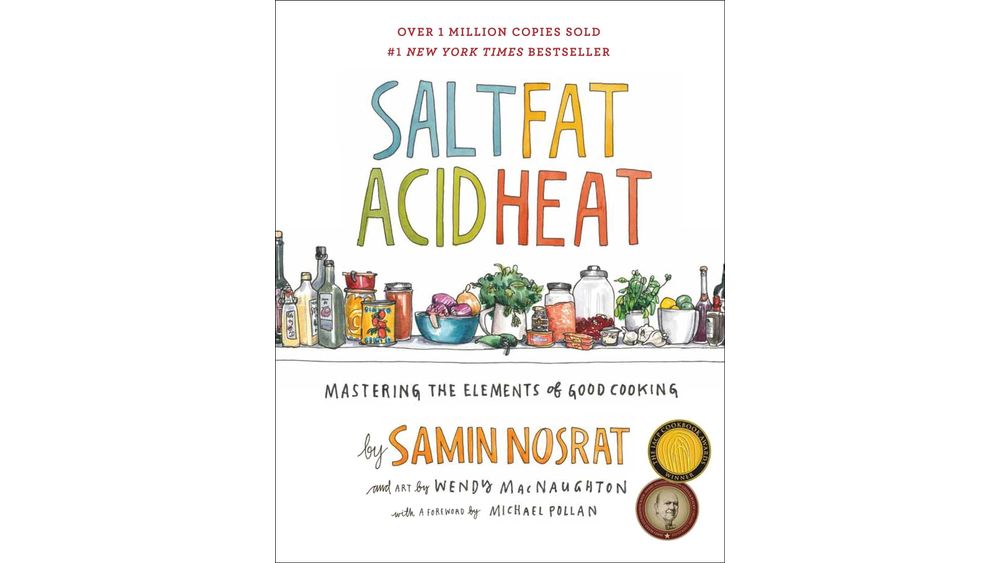
In the world of culinary books, “Salt, Fat, Acid, Heat” by Samin Nosrat stands out as a beacon of wisdom for both the novice and seasoned home cook alike. Unlike traditional cookbooks, Nosrat dedicates her pages to educating readers on the foundational elements of cooking, offering a deep dive into how salt, fat, acid, and heat work together to create delicious dishes. The author’s approach to teaching these elements empowers readers to cook confidently with what they have in their pantry, transforming everyday ingredients into extraordinary meals.
Readers have praised the book for its insightful blend of science and culinary art, its engaging narrative, and its ability to inspire kitchen creativity. The hardbound edition, in particular, has been noted for its practical spread of various salts, acids, and fats used in global cuisines, proving to be an invaluable resource for those looking to explore international flavors. The book’s emphasis on understanding rather than memorization encourages a freer, more intuitive approach to cooking.
Pro:
- Educates on the scientific principles of cooking, enabling creative freedom in the kitchen.
- Packed with engaging narrative and vivid explanations that appeal to cooks of any skill level.
- Features a useful guide to global ingredients, aiding in the exploration of international dishes.
Contra:
- It might not satisfy those looking specifically for a traditional recipe book.
- The depth of information could be overwhelming for absolute beginners.
- Requires a willingness to experiment and learn from mistakes, which might not appeal to all readers.
I recommend this book to you if:
- You’re eager to understand the science behind delicious flavors.
- You prefer creativity and intuition over strict recipes.
- You’re interested in mastering the fundamental elements that make any dish taste great.
8. The French Laundry Cookbook by Thomas Keller
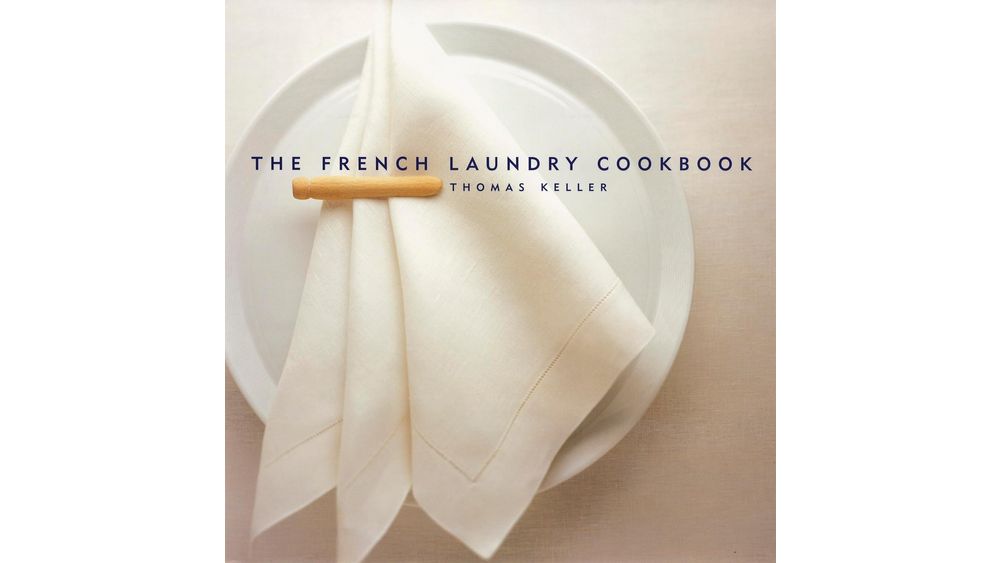
“The French Laundry Cookbook” by Thomas Keller is more than a collection of exquisite recipes from the celebrated Napa Valley restaurant; it is a journey into the philosophy of creating joy through cooking. Keller’s opening remarks on the pursuit of perfection in the kitchen lay the groundwork for an inspiring read, emphasizing cooking’s ultimate goal: to make people happy. This book, with its beautiful layout, compelling stories, and breathtaking photography, serves both as a manual for ambitious home cooks and a showpiece for the coffee table. Its depth offers something for everyone, from the seasoned home cook to the culinary aspirant, making it a cherished addition to any collection.
However, the very ambition that makes “The French Laundry Cookbook” a masterpiece also places it beyond the reach of many everyday cooks. The complexity of the recipes, coupled with the need for specialized equipment and hard-to-find ingredients, may deter those looking for practical, everyday meal solutions. Yet, for enthusiasts willing to embrace the challenge, Keller’s book offers an unparalleled window into the art of haute cuisine, encouraging readers to see food as an avenue for creativity, beauty, and artistic expression.
Pro:
- Offers profound insights into the art of fine dining and food preparation philosophy.
- Contains visually stunning photography and engaging stories behind the celebrated dishes.
- Serves as a source of inspiration for seasoned cooks and culinary artists.
Contra:
- Recipes may be too complex and time-consuming for casual or beginner cooks.
- Requires access to specialized equipment and rare ingredients.
- More of a coffee table or educational book than a practical guide for daily cooking.
I recommend this book to you if:
- You’re a culinary enthusiast or aspiring chef eager to explore high-end cooking techniques.
- You appreciate the stories and philosophies behind renowned dishes and restaurants.
- You’re looking for a cookbook that doubles as a conversation piece and a source of inspiration.
9. Every Grain of Rice by Fuchsia Dunlop
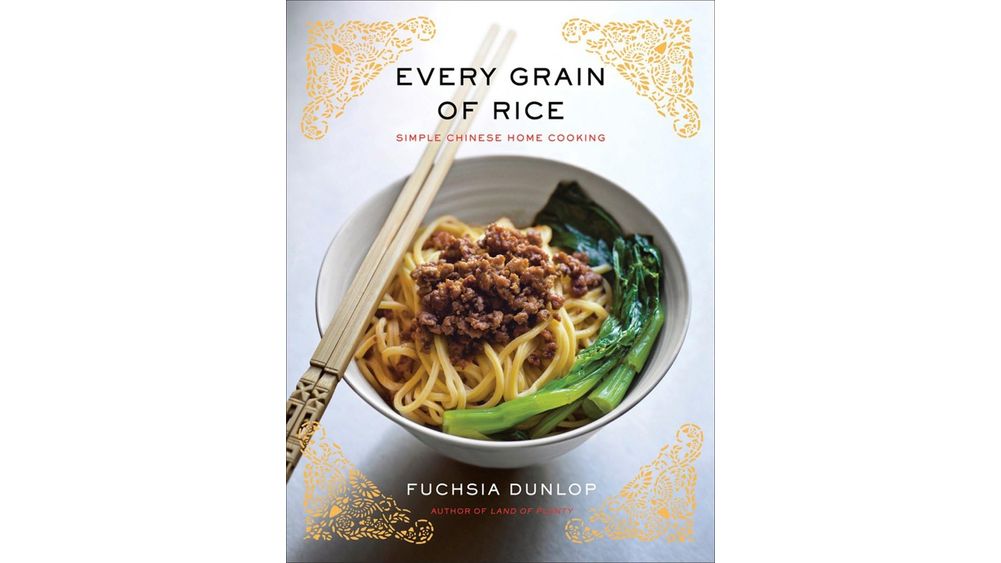
Fuchsia Dunlop’s “Every Grain of Rice” brings the authentic flavors of Chinese cuisine right to your kitchen. Drawing from personal experiences and meticulous research, this book is more than a cookbook; it’s a passport to exploring Chinese culinary traditions. Critics and home cooks alike rave about how Dunlop makes complex flavors accessible, transforming simple ingredients into masterful dishes.
The vivid descriptions of different Chinese sauces and spices, along with their uses and sequences in cooking, are standout features. For readers who grew up eating Chinese food and those entirely new to the cuisine, this book is an educational treasure trove. It doesn’t just list recipes; it explains the “how” and “why” behind them, making every dish a learning experience and every meal a delightful experiment.
Pro:
- Provides a deep dive into authentic Chinese cooking techniques and flavors, making it possible to recreate traditional dishes at home.
- Emphasizes simplicity and accessibility, utilizing common, easy-to-find ingredients to achieve authentic tastes.
- Offers comprehensive guides on Chinese kitchenware, sauces, and spices, enhancing both novice and experienced cooks’ understanding.
Contra:
- Might be overwhelming for complete beginners due to the detailed explanations and techniques.
- Not all ingredients may be readily available in non-Asian markets, requiring some effort to source.
- The emphasis on traditional methods might not appeal to those looking for quick and easy meals.
I recommend this book to you if:
- You’re interested in authentic Chinese cuisine and want to expand your culinary skills.
- You appreciate books that explore the culture and history behind the food.
- You’re willing to invest time in sourcing specific ingredients for a more authentic cooking experience.
10. The Food Lab: Better Home Cooking Through Science by J. Kenji López-Alt
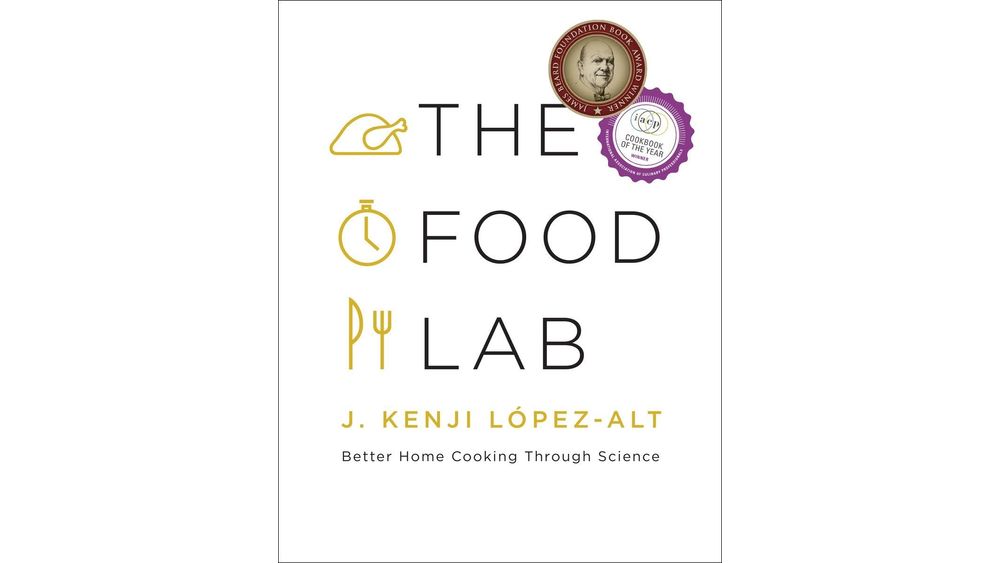
J. Kenji López-Alt’s “The Food Lab” is nothing short of a revolution in the kitchen, combining scientific insight with mouthwatering recipes. This 900-page tome not only offers recipes but digs into the science behind cooking, answering the “whys” and “hows” that curious cooks ponder. The humorous and geeky prose makes the complex science of cooking both understandable and delightful.
Kenji’s meticulous experiments dispel cooking myths and transform everyday cooking with simple tweaks that have a big impact on flavor. Whether it’s understanding the effects of salt on proteins or the best way to press tofu, Kenji’s insights are game-changers. It’s not just a cookbook; it’s a comprehensive guide to better cooking through science, offering both novices and veteran chefs valuable knowledge.
Pro:
- Blends scientific understanding with practical recipes, enhancing the home cooking experience.
- Kenji’s engaging writing style makes the science of cooking both informative and fun.
- Packed with well-researched recipes that have been tested and perfected, ensuring great results.
Contra:
- Its length and depth might be daunting for those seeking a quick and simple cookbook.
- Requires space on your bookshelf due to its substantial size.
- Some readers may find the detailed scientific explanations more than they bargained for in a cookbook.
I recommend this book to you if:
- You have a penchant for understanding the science behind cooking.
- You’re looking for a cookbook that teaches and entertains.
- You’re ready to transform your cooking from routine to remarkable with science-based insights.
11. Good Meat: The Complete Guide to Sourcing and Cooking Sustainable Meat by Deborah Krasner
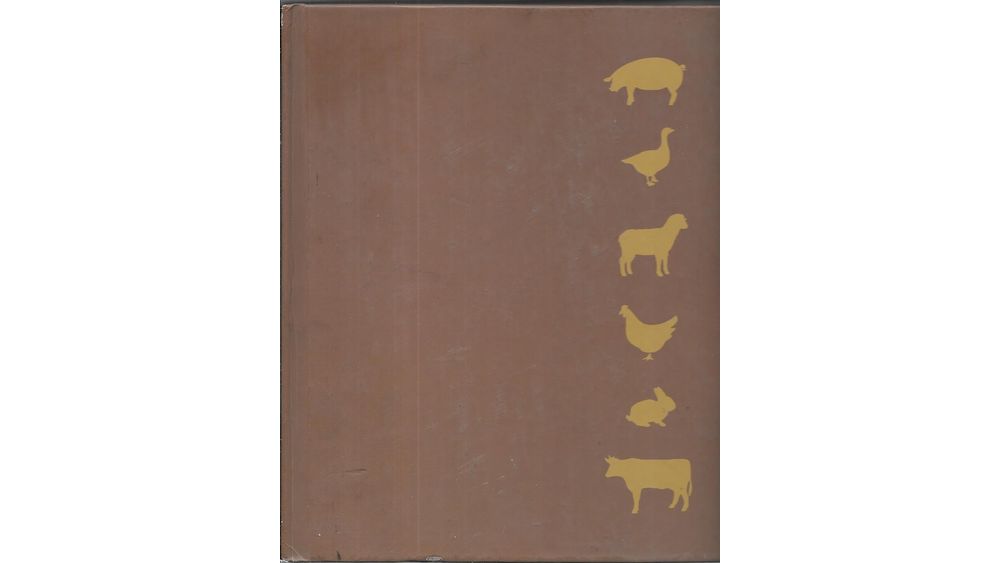
Deborah Krasner’s Good Meat stands as a beacon of knowledge for those embarking on the sustainable meat journey. From its thorough explanations on how to source ethical meat to its assortment of recipes, this book caters to both the novice and the seasoned cook. Diagrams and vivid color photos guide readers through the different cuts of meat, ensuring that even those new to preparing meat can approach this task with confidence. The first-hand account of a reader embarking on a meat-buying journey punctuates the book’s practicality, making it relatable and inspiring. [1]
Pro:
- Exhaustive guide on sourcing and cooking sustainable meat.
- Includes detailed diagrams and color photos.
- Features a variety of delicious recipes tested by home cooks with success.
Contra:
- May be intimidating for absolute beginners due to the depth of information.
- Focuses on sustainable meat, which might not be accessible to everyone.
I recommend this book to you if:
- You’re interested in the sustainability aspect of meat consumption.
- You want to learn more about different cuts of meat and how to cook them.
- You enjoy incorporating new, tested recipes into your cooking repertoire.
12. Sauces: Classical and Contemporary Sauce Making, 3rd Edition by James Peterson
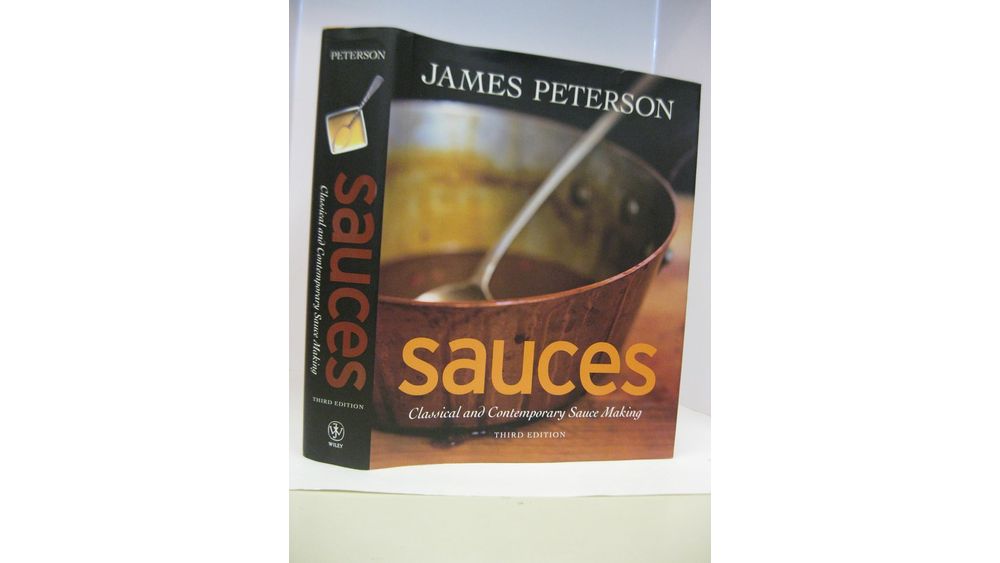
With a stellar reputation as the definitive guide on sauce-making, James Peterson’s 3rd edition of Sauces goes beyond expectations. Exploring a wide variety of sauces from French/continental traditions to international delights like Mexican salsas and Japanese dashi, this book is a treasure trove for passionate cooks. Its emphasis on continental sauces is complemented by interesting forays into other cuisines, albeit with less exhaustive coverage. Valuable charts that map out the relationships and derivatives of sauces make this edition particularly helpful, alongside the historical backgrounds and comprehensive recipes.
Pro:
- Comprehensive and authoritative on sauce-making.
- Includes valuable charts and diagrams for easy understanding.
- Broad coverage, including continental and international sauces.
Contra:
- Primarily focused on continental sauces, with limited coverage of other cuisines.
- Can be technical, might intimidate novice cooks.
I recommend this book to you if:
- You are keen on mastering the art of sauce-making.
- You appreciate detailed, historical, and technical insights into culinary arts.
- You’re looking for a reference book that spans both classical and contemporary sauces.
13. Joy of Cooking (75th-Anniversary Edition) by Irma S. Rombauer, Marion Rombauer Becker, and Ethan Becker
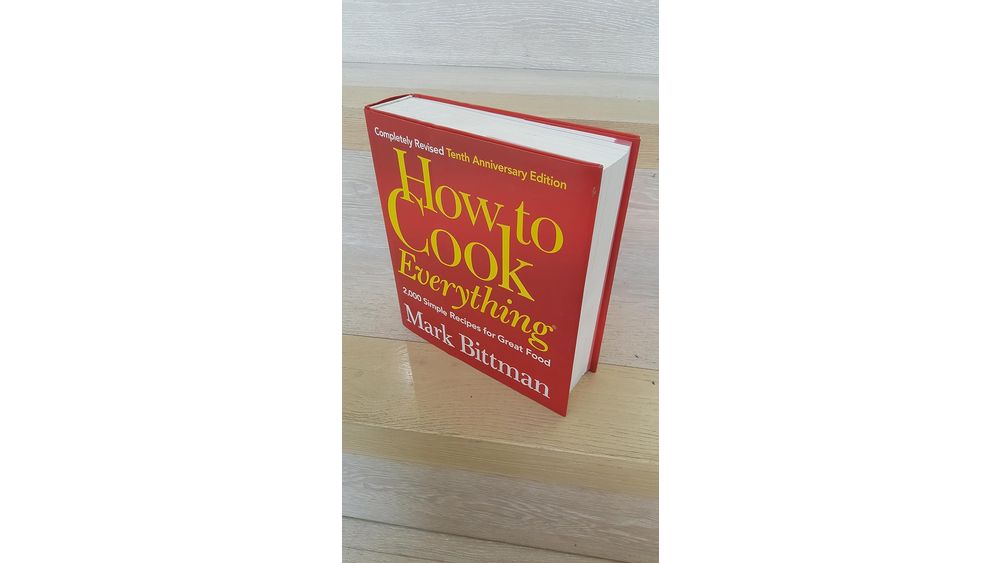
In the vast ocean of culinary guides, the 75th-Anniversary Edition of Joy of Cooking stands as a lighthouse for both budding and seasoned chefs. This edition has been applauded for taking a revered classic and injecting it with a contemporary sensibility without losing the original’s charm. It elegantly combines essential recipes with a myriad of variations, showcasing flexibility and creativity in the kitchen. This versatility ensures it’s a book that grows with you, adapting to your evolving culinary skills and tastes.
One of the most endearing features of this anniversary edition is its approachable tone and clear instructions, making it a beacon for those embarking on their culinary journeys. The book doesn’t just list recipes; it educates, making it a valuable resource for understanding cooking fundamentals. Additionally, the inclusion of star-marked recipes as must-tries and the provision of variations underpin its usefulness in preventing culinary ennui. It encourages experimentation while boosting the cook’s confidence, a testament to its adaptability across skill levels.
However, it’s noteworthy that the edition focuses less on avant-garde or overly complex recipes, aiming instead to solidify its position as a comprehensive guide for home cooking. This could be seen as a limitation for those seeking to test their boundaries with highly adventurous dishes. Nonetheless, its strengths far outweigh this consideration, making it a cherished addition to any kitchen bookshelf.
Pro:
- Offers a wide array of versatile and adaptable recipes, making it suitable for cooks of all levels.
- Clear, simple instructions paired with educational insights enhance understanding and confidence in cooking.
- Recognition as a top general cookbook adds to its credibility and desirability.
Contra:
- Lacks a focus on complex, adventurous recipes, which might not satisfy all culinary adventurers.
I recommend this book to you if:
- You’re looking for a foundational cookbook that grows with you.
- You appreciate clear instructions and the versatility of recipes.
- You enjoy cooking with confidence and exploring variations of your favorite dishes.
14. Japanese Cooking: A Simple Art by Shizuo Tsuji
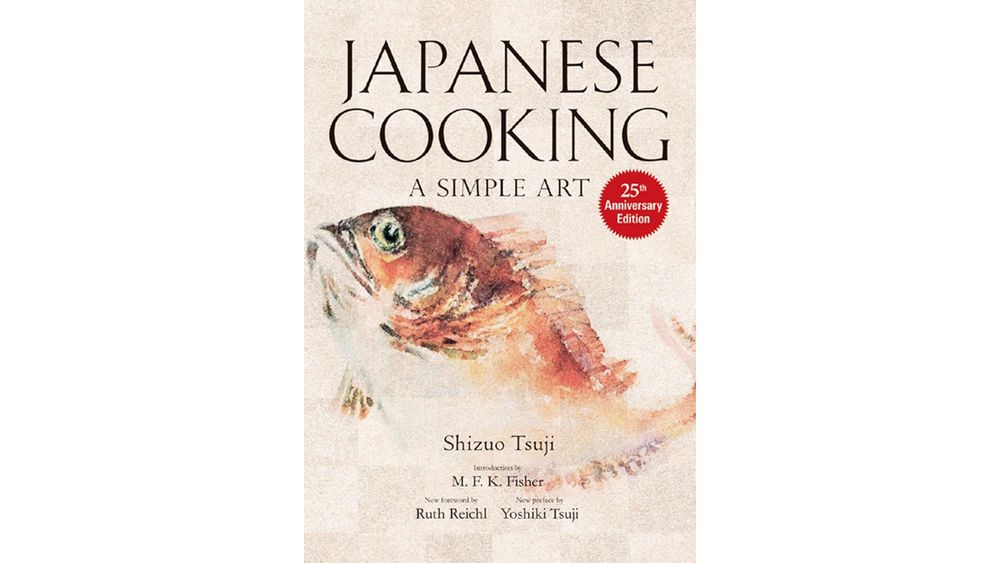
Shizuo Tsuji’s masterpiece, Japanese Cooking: A Simple Art, transcends being a mere cookbook; it is a comprehensive dive into the heart and soul of Japanese cuisine. This book is celebrated for its rigorous attention to detail and depth, making it the go-to source for anyone serious about mastering the art of Japanese cooking. From the philosophy behind the cuisine to the meticulous preparation of ingredients, Tsuji’s work is a testament to a lifetime dedicated to culinary excellence. [2]
Each chapter is a beautifully crafted lesson in the discipline and refinement that Japanese cuisine demands. Tsuji does not merely present recipes; he escorts the reader on a journey through the art and science of Japanese cooking. The prose is insightful, guiding budding chefs on how to carefully select ingredients, prepare them with precision, and present dishes that please both the palate and the eye. Despite the initial intimidation some might feel due to the foreignness of techniques and ingredients, Tsuji’s guidance is a gentle hand on the shoulder, encouraging and instructive.
The sheer breadth and depth of the book mean that it offers something for everyone – from the complete novice to the experienced chef. While the detail can be daunting, those who commit to Tsuji’s methods will find themselves rewarded with unparalleled flavors and techniques. It’s a book that invites exploration and rewards perseverance, a culinary companion for life.
Pro:
- Offers an exhaustive exploration of Japanese cuisine, from fundamentals to sophisticated dishes.
- Elegantly written prose that educates and inspires, delving into the philosophy and techniques of Japanese cooking.
- Suitable for a wide audience, providing value for both beginners and experienced cooks.
Contra:
- The depth and detail can be intimidating for newcomers unfamiliar with Japanese cooking traditions.
- Requires commitment to master techniques and ingredients that may be new to the reader.
I recommend this book to you if:
- You have a genuine interest in understanding and mastering Japanese cuisine.
- You appreciate the philosophy behind cooking and are willing to invest time in learning detailed techniques.
- You seek a comprehensive guide that not only teaches recipes but also the artistry of food presentation.
15. The Art of Mexican Cooking: Traditional Mexican Cooking for Aficionados by Diana Kennedy
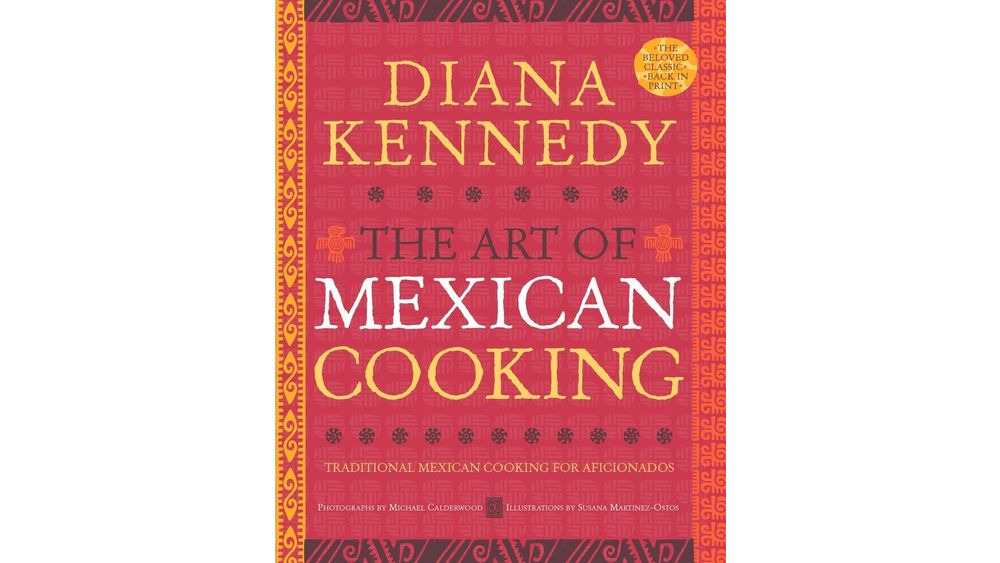
Diana Kennedy’s The Art of Mexican Cooking presents itself not just as a cookbook, but as a comprehensive guide to the richness of Mexican cuisine. It embarks on a journey through regional foods and traditional preparation methods, challenging readers to dive deep into the culinary culture. For those fascinated by the nuances of ingredients like various peppers and their meticulous handling, this book offers a treasure trove of knowledge.
While some may find the serious commitment to traditional cooking methods daunting, the book is lauded for leading readers through authentic, flavorful dishes praised by both the author’s fans and guests during “Mex Night”. The absence of glossy photos might be seen as a minus by some, but it emphasizes the book’s focus on technique over aesthetic appeal. Kennedy’s precision and depth ensure that even without vivid images, readers are thoroughly guided in replicating these deeply authentic dishes.
Pro:
- Offers an in-depth exploration of Mexican regional foods and traditional methods.
- Kennedy’s precise explanations ensure success in creating flavorful dishes.
- More than a cookbook, it’s an educational tool about the nuances of Mexican cooking.
Contra:
- Requires a significant time commitment for preparation and learning.
- Lack of color photographs might not appeal to those who prefer visual guides.
- May be daunting for beginners or those looking for quick and easy recipes.
I recommend this book to you if:
- You are passionate about authentic Mexican cuisine
- You value depth and educational value over quick recipes
- You’re ready to commit time to mastering traditional cooking techniques
16. The New Vegetarian Cooking for Everyone by Deborah Madison
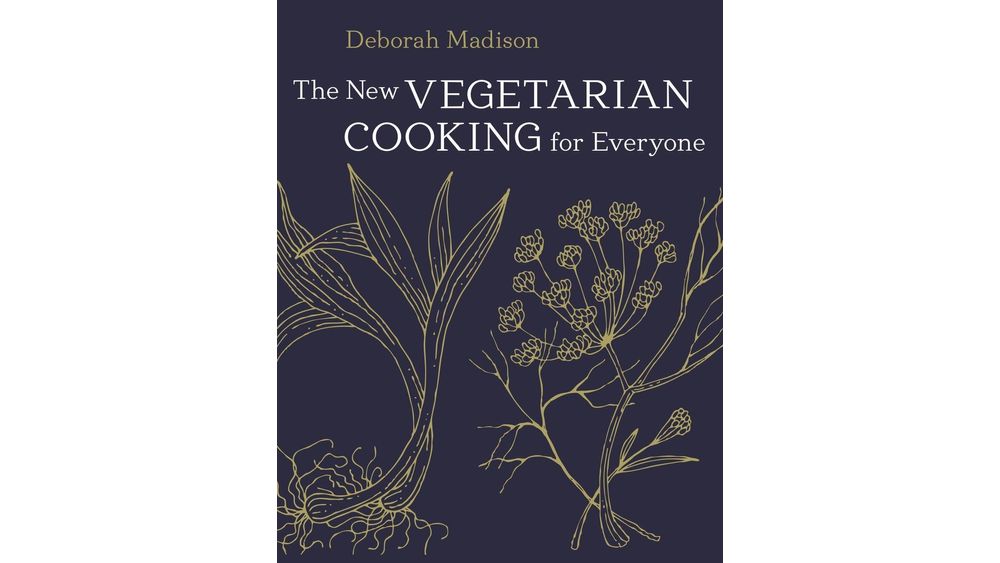
Deborah Madison’s The New Vegetarian Cooking for Everyone is a colossal tome, teeming with thousands of simple recipes, and a myriad of variations for each. It’s hailed as the go-to resource for anyone looking to cook vegetarian dishes, regardless of the season. This sentiment is echoed by many who regret not having this as their singular source of recipes, considering the breadth and depth it offers compared to other vegetarian cookbooks.
Despite some concerns about the condition of the book upon arrival and its second-hand feel, the content within proves its worth. The book includes excellent introductory sections and well-written guidelines for each section of recipes. Whether you are a veteran vegetarian chef or just starting, Madison provides a balance of savory recipes and explanatory notes that promise success in the kitchen. The lack of typographical errors speaks to the careful editing and presentation of the book.
Pro:
- Contains a vast array of simple recipes with variations, catering to all seasons.
- Well-structured, with helpful introductory sections and clear guidelines.
- Focus on balance and explanation makes it suitable for a wide range of cooking skills.
Contra:
- Physical condition of the book might vary, potentially arriving with signs of wear or handling.
- The sheer volume of the book could be overwhelming for some readers.
- Those seeking modern vegetarian cuisine might find some recipes to be more traditional.
I recommend this book to you if:
- You’re searching for an all-encompassing vegetarian cookbook
- You appreciate books that offer clear, explanatory guidance alongside recipes
- You don’t mind the possibility of the book having a “loved” appearance
17. Fish and Shellfish by Rick Stein
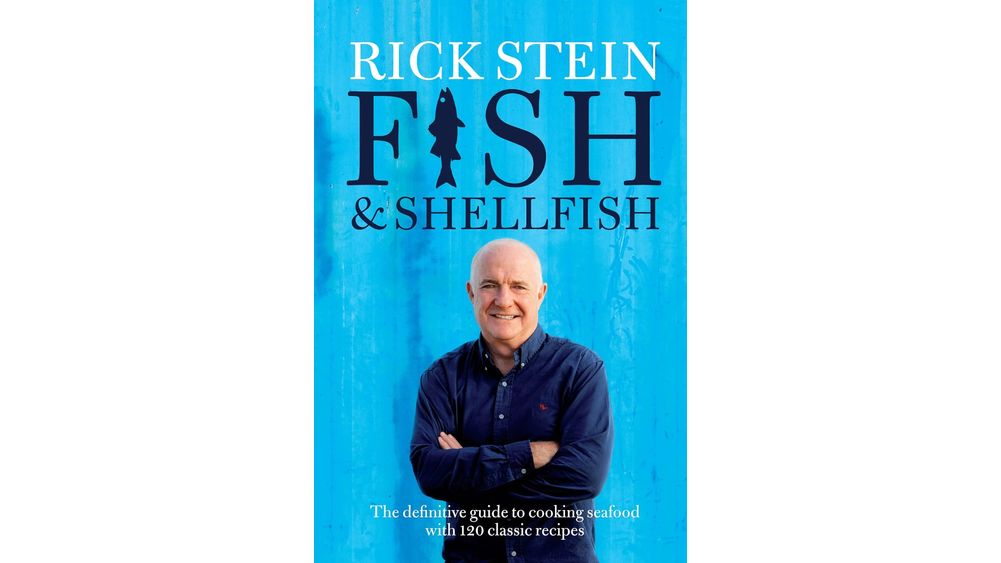
Rick Stein’s “Fish and Shellfish” stands as a masterpiece in the culinary book landscape, particularly for those who cherish the bounty of the sea. Stein, with his unparalleled expertise, delves into the nuances of selecting, preparing, and cooking a wide variety of fish and shellfish, presenting this knowledge in a way that is both enlightening and accessible. From the humble mackerel to the luxurious lobster, Stein’s guidance on ensuring quality and freshness transforms seafood meals into a delightful culinary adventure.
The book’s meticulous attention to detail and Stein’s enthusiasm for uncovering the lesser-known treasures of the sea make it an indispensable resource. Whether you’re a seasoned chef or a home cook looking to expand your seafood repertoire, Stein’s wisdom will elevate your cooking to new heights. “Fish and Shellfish” is decorated with high-quality editing and vibrant illustrations that not only guide but inspire.
Pro:
- Comprehensive guide on seafood selection, preparation, and cooking techniques.
- Includes a variety of recipes catering to both uncommon and popular seafood.
- Useful for both professional chefs and home cooks.
Contra:
- May be overwhelming for complete beginners with its wide array of seafood.
- Focuses heavily on seafood, which may not appeal to those looking for a broader culinary range.
I recommend this book to you if:
- You have a profound love for seafood and wish to explore beyond the basics.
- You’re seeking a resource-packed guide that delves into the quality and freshness of fish.
- You appreciate a book that serves not only as a culinary guide but also as a source of inspiration for elevating your seafood dishes.
18. The Flavor Equation: The Science of Great Cooking Explained in More than 100 Essential Recipes by Nik Sharma
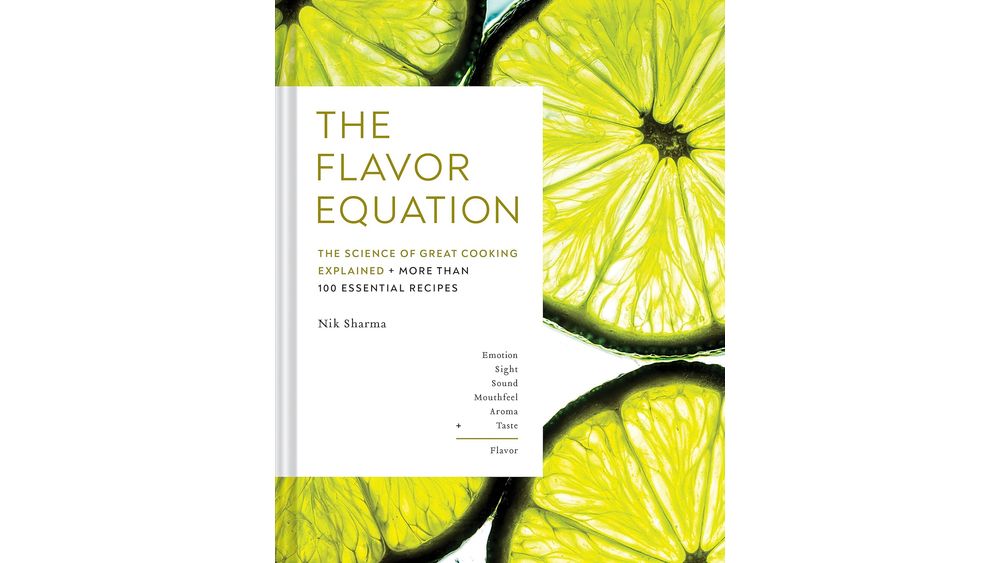
Nik Sharma’s “The Flavor Equation” emerges as a groundbreaking work that marries the art of cooking with the precision of science. Through Sharma’s biochemistry and microbiology expertise, readers are led on a fascinating journey into the building blocks of flavor. This book is especially appealing for those intrigued by the confluence of science and culinary arts, offering a unique lens through which to explore cooking.
Sharma’s approach of categorizing recipes based on flavor profiles rather than ingredients pivots from traditional cooking books, encouraging readers to think about food in a new and exciting way. Whether you seek to deepen your understanding of Indian cuisine or to expand your culinary horizons in general, “The Flavor Equation” presents a rich tapestry of tastes backed by scientific insights and visually stunning photography.
Pro:
- Integrates biochemistry and microbiology to explore the science of flavor.
- Offers a unique categorization of recipes based on flavor profiles.
- Includes a wealth of anecdotal insights and visually appealing photographs.
Contra:
- The scientific discussions may be challenging for those without a background in STEM.
- Focuses predominantly on Indian cuisine, which may not cater to all tastes.
I recommend this book to you if:
- You are fascinated by the scientific underpinnings of cooking and flavor.
- You’re eager to explore Indian cuisine through a fresh, scientifically-informed perspective.
- You value a book that combines in-depth knowledge with practical, delicious recipes.
19. The Food of Sichuan by Fuchsia Dunlop
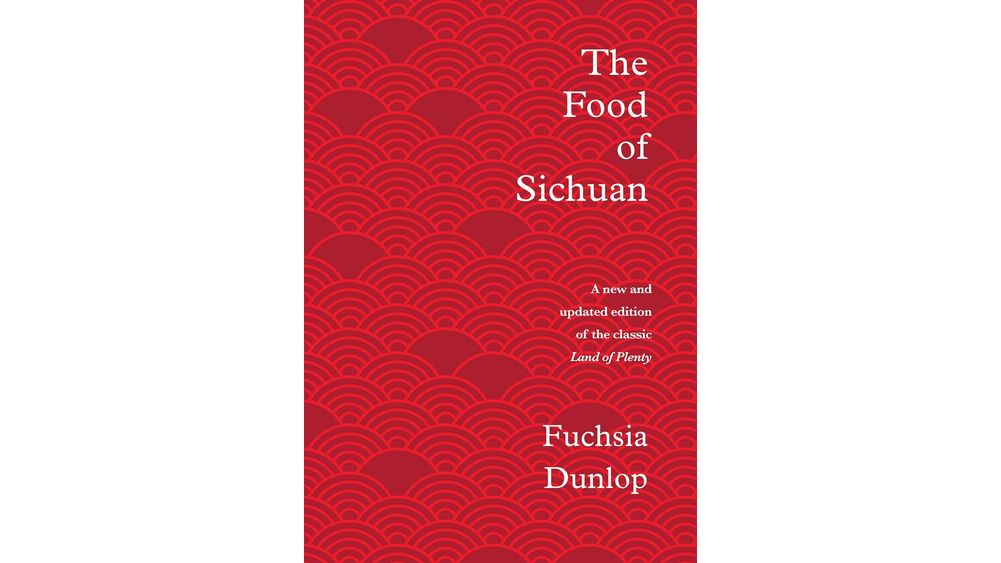
Fuchsia Dunlop’s “The Food of Sichuan” is an enthralling dive into the depths of Sichuan cuisine, updated with 70 new recipes alongside 12 variations. The book brings the culinary vibrancy of Sichuan right into your kitchen. Readers have been captivated by the rich, intricate flavors that Dunlop so expertly guides them through, making this book a treasure trove for enthusiasts of this Chinese culinary tradition. However, some readers find the lack of direct identification for new recipes since the first edition a tad inconvenient, needing to refer to external sources to distinguish them.
Pro:
- Rich in detail and variety, offering a comprehensive exploration of Sichuan cuisine.
- Updated edition includes 70 new recipes, expanding on an already extensive collection.
- Dunlop’s expertise and clear instructions demystify complex flavors and techniques.
Contra:
- Absence of clear markers or a list within the book identifying the new recipes.
- May require sourcing specialized ingredients that can be a hurdle for some home cooks.
- The vast array of recipes and lack of immediate differentiation for additions since the first edition can overwhelm newcomers to Sichuan cooking.
I recommend this book to you if:
- You’re deeply interested in exploring the complexities of Sichuanese cuisine.
- You appreciate having a vast array of recipes at your disposal.
- You don’t mind seeking out the specialized ingredients required for authenticity.
20. The Nordic Baking Book by Magnus Nilsson
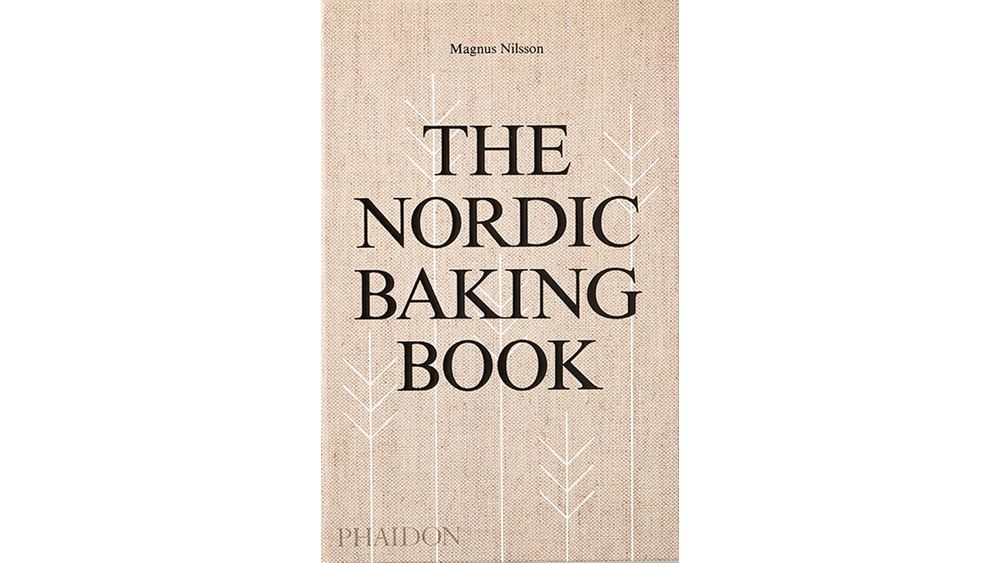
“The Nordic Baking Book” by Magnus Nilsson presents itself as a lovingly crafted homage to Nordic baking traditions, with its high-quality cover, heavyweight pages, and exquisite photography enticingly inviting readers in. The essence of Nordic baking is explored through both its recipes and the stories that accompany them, offering readers a window into the intimate connection between Nordic culture and its baked goods. Readers are not only drawn in by the recipes that are accessible and manageable but also find themselves appreciating Nilsson’s personal, down-to-earth approach to food writing. His honest and unpretentious narrative radiates a pure love for Nordic baking, making the book as enjoyable to read as a heartfelt novel.
Pro:
- Exceptionally high-quality physical presentation enhances the reading and baking experience.
- Recipes are designed to be accessible, with simplified ingredient lists that encourage baking.
- Nilsson’s engaging and heartfelt food writing enriches the book beyond a mere collection of recipes.
Contra:
- For the culinary adventurer, the straightforward nature of many recipes might seem too basic.
- Lacks a deep dive into more intricate or lesser-known Nordic baking techniques for those seeking advanced challenges.
- The narrative style, while charming to many, might not cater to those seeking a more straightforward, recipe-focused baking book.
I recommend this book to you if:
- You’re seeking both inspiration and comfort in your baking endeavors.
- You appreciate a cookbook that balances practical recipes with engaging storytelling.
- You’re curious about or have a love for Nordic culinary traditions and cultures.
21. Deep Run Roots: Stories and Recipes from My Corner of the South by Vivian Howard
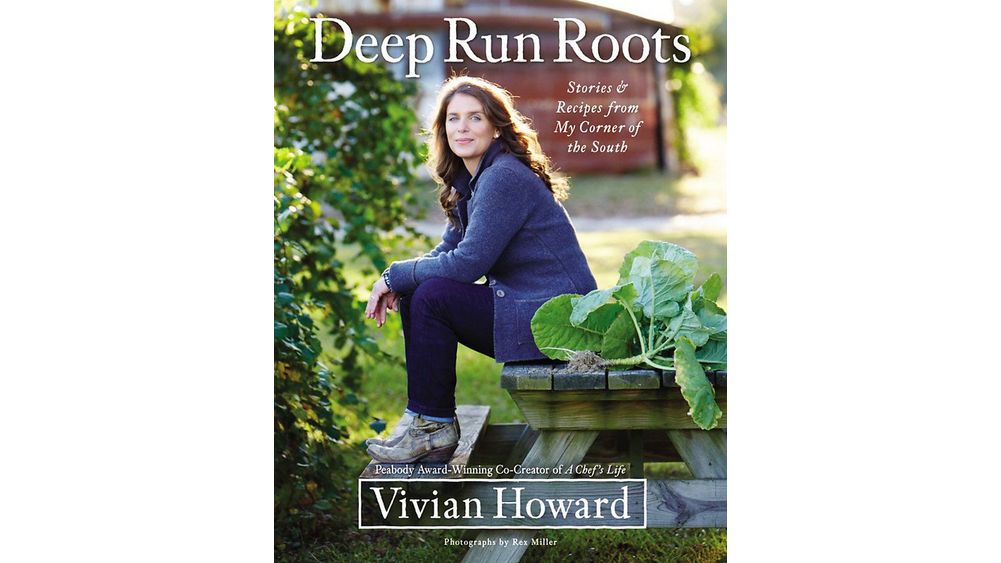
Vivian Howard‘s “Deep Run Roots” is a testament to the depth and richness of Southern cooking, offering readers a doorway into the heart of North Carolina through sumptuous recipes and heartfelt stories. From the moment you open its pages, this book invites you into a world where cooking is more than just preparing food; it’s about preserving history, celebrating family, and embracing the bountiful ingredients offered by the land. The book is hefty in both size and substance, serving not only as a collection of recipes but as a personal memoir and cultural exploration of the American South.
With chapters dedicated to specific ingredients, Howard intertwines tales and flavors, creating a symphony of tastes that represent the soul of Southern cuisine. Through dishes like Stewed Fresh Butterbeans and Fried Green Tomatoes with Curried Peach Preserves and Whipped Feta, Howard showcases the versatility and innovation that lie within traditional Southern cooking. Her narrative style is truly engaging, transforming each recipe into a story worth savoring.
Pro:
- Combines stories, history, and recipes, offering more than just a cookbook experience.
- Focuses on specific ingredients with a modern take on traditional Southern dishes.
- Vivian Howard’s engaging writing style makes readers feel like they’re listening to a friend.
Contra:
- The sheer volume and complexity of some recipes might be daunting for beginners.
- Photography style described as rustic, which may not appeal to everyone.
- Size of the book makes it cumbersome to handle in a kitchen setting.
I recommend this book to you if:
- You’re interested in the stories behind the dishes as much as the recipes themselves.
- You appreciate a deep dive into Southern cuisine.
- You’re looking for a book that combines culinary exploration with heartfelt personal narratives.
22. On Food and Cooking: The Science and Lore of the Kitchen by Harold McGee
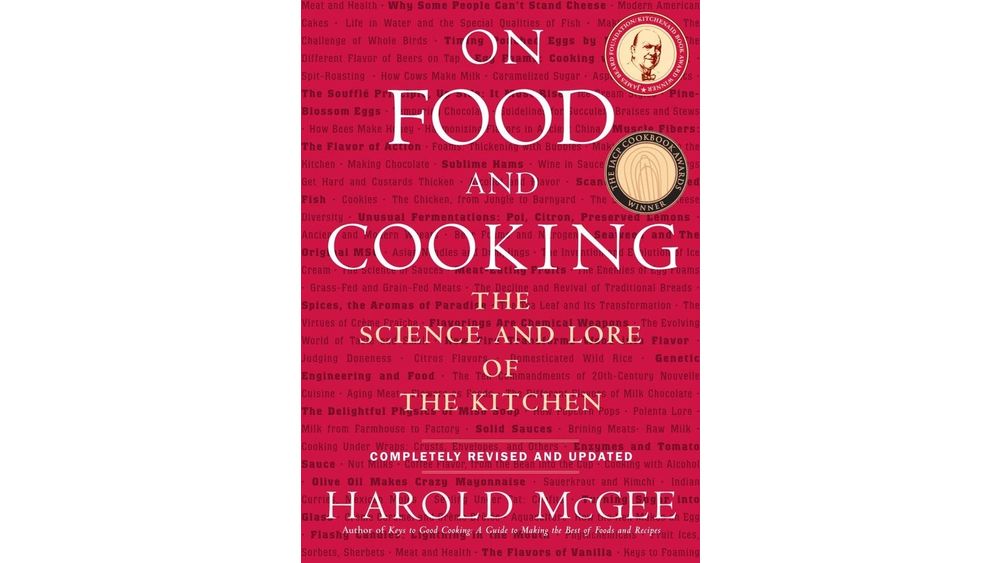
Harold McGee’s “On Food and Cooking: The Science and Lore of the Kitchen” stands as an iconic reference for anyone interested in the why behind the way foods behave the way they do in the kitchen. This new edition builds upon its predecessor’s legacy, delving into culinary science with an accessible and engaging approach that captivates professionals and food enthusiasts alike. With endorsements from culinary giants like Thomas Keller and Jacques Pepin, it’s clear McGee’s work is an invaluable resource for understanding cooking on a deeper level. [3]
The book covers a vast array of topics, from the basics of milk and dairy to the intricacies of alcohol and cooking methods. It serves not only as a comprehensive guide to the scientific underpinnings of cooking but also as a historical and cultural investigation into the foods we love. With over 800 pages of densely packed information, readers can jump to sections that pique their interest, making it a treasure trove of culinary knowledge that’s both broad and deep.
Pro:
- Offers in-depth scientific explanations of cooking processes and food behaviors.
- Broad and comprehensive coverage of foods, cooking methods, and culinary history.
- Acts as a go-to reference for culinary professionals and enthusiasts for practical and theoretical knowledge.
Contra:
- The density of information may be overwhelming for casual readers.
- Requires a basic understanding of chemistry for full appreciation of the content.
- The book’s length and scope might make it challenging to find specific information quickly.
I recommend this book to you if:
- You have a keen interest in the science behind cooking.
- You’re a culinary professional seeking to deepen your knowledge.
- You enjoy understanding the history and culture connected to the foods we eat.
23. Plenty: Vibrant Vegetable Recipes from London’s Ottolenghi by Yotam Ottolenghi
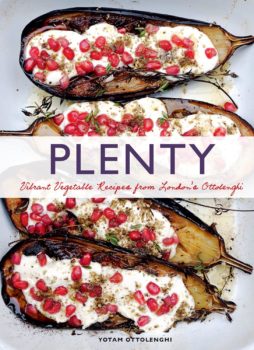
Yotam Ottolenghi’s “Plenty: Vibrant Vegetable Recipes from London’s Ottolenghi” is a culinary masterpiece that shines a spotlight on vegetarian cuisine with unparalleled flair and flavor. The book promises to take your taste buds on a journey with distinctive and sophisticated vegetarian dishes that echo the richness of a high-end restaurant experience. Each recipe, from the fig and goat cheese salad with arugula and balsamic dressing to more intricate fares, is a testament to Ottolenghi’s inspired approach to vegetable cooking.
However, novice cooks or those with smaller kitchen spaces might find the preparation of these dishes challenging. Ottolenghi’s recipes often call for rare ingredients and a certain level of culinary skill, setting a higher bar for those who wish to recreate the magic of his dishes at home. While the book is brimming with exquisite recipes, those with limited access to a variety of ingredients or those cooking for smaller numbers may need to consider these factors carefully.
Pro:
- Each recipe offers a taste of sophisticated vegetarian dining, making every meal an adventure.
- Rich diversity of recipes catering to various tastes and preferences within the vegetarian spectrum.
- The book is beautifully presented, with stunning photography and enticing descriptions that inspire cooking.
Contra:
- Preparation can be complex, requiring a good level of culinary skill that might discourage novice cooks.
- Many recipes require rare or specific ingredients, potentially increasing the cost and difficulty of sourcing.
- Recipes are generally tailored for four or more servings, which might not suit smaller households or those cooking for two.
I recommend this book to you if:
- You are looking to elevate your vegetarian cooking with restaurant-quality recipes.
- You have access to a variety of ingredients and enjoy exploring new flavors.
- You are comfortable with a certain level of culinary challenge and keen to expand your cooking repertoire.
FAQs
1. What makes a cooking book great for beginners?
What makes a cooking book great for beginners involves clear and simple instructions, step-by-step photographs, and an understanding of basic cooking techniques.
- Firstly, the book should offer a glossary of terms and essential tools needed, making the kitchen a less intimidating place. [4]
- Secondly, recipes that require minimal ingredients but deliver maximum flavor are crucial.
This ensures that newcomers can build confidence while enjoying the learning process.
2. How can I choose a cooking book that suits my dietary restrictions?
To choose a cooking book that suits dietary restrictions, start by researching books dedicated to your specific needs, whether it’s gluten-free, vegan, or low-carb diets.
- Look for authors who specialize in your area of interest or come highly recommended by communities or individuals with similar dietary needs.
- Additionally, seek out books that offer substitutions for common allergens or restricted ingredients, ensuring you can enjoy a wide variety of meals without compromise.
3. Are there any cooking books that focus on quick and easy recipes?
Certainly, there are numerous cooking books that focus on quick and easy recipes designed to fit into a bustling lifestyle. Books like “The 30-Minute Mediterranean Diet Cookbook” by Serena Ball and Deanna Segrave-Daly, and “Express Lane Cooking” by Shawn Syphus offer a plethora of delicious, straightforward meals that can be prepared in a short amount of time. These selections prove invaluable for those looking to whip up healthful and flavorsome dishes without spending hours in the kitchen.
4. What are some tips for getting the most out of a cooking book?
To get the most out of a cooking book, it’s essential to engage actively with its content. Start by thoroughly reading the introduction and any provided tips or techniques sections; they are gold mines of foundational knowledge and tricks.
- List and organize the necessary ingredients and equipment ahead of time to ensure a smooth cooking process.
- Experiment with recipes; don’t be afraid to substitute ingredients to match your taste or dietary needs.
- Lastly, make notes in the margins about what worked, what didn’t, and any variations you tried. This personalized touch turns any cookbook into a customized cooking journey unique to you.
Conclusion
As we wrapped ourselves in the delicious pages of the best cooking books of 2024, it’s been a journey of flavors, traditions, and culinary innovations. The act of cooking, as depicted in these masterpieces, transcends mere sustenance. It’s about connecting cultures, expressing creativity, and nurturing oneself and others with every bite.
Reflecting on the diversity and depth of this list, there’s a palpable joy in discovering that, irrespective of your culinary skill level or dietary preferences, there’s a book tailored just for you. The best cooking books offer more than recipes; they provide windows into the culinary souls of their creators, inviting us to explore, experiment, and evolve in our kitchen adventures.
Before we part ways, remember that the journey through the best cooking books is one of continuous learning and delight. As you embark on this culinary voyage, may each page turn add a new flavor to your life. Happy cooking! So, until we meet again, keep the stove warm and the recipes adventurous. With all my heart, Emma.





